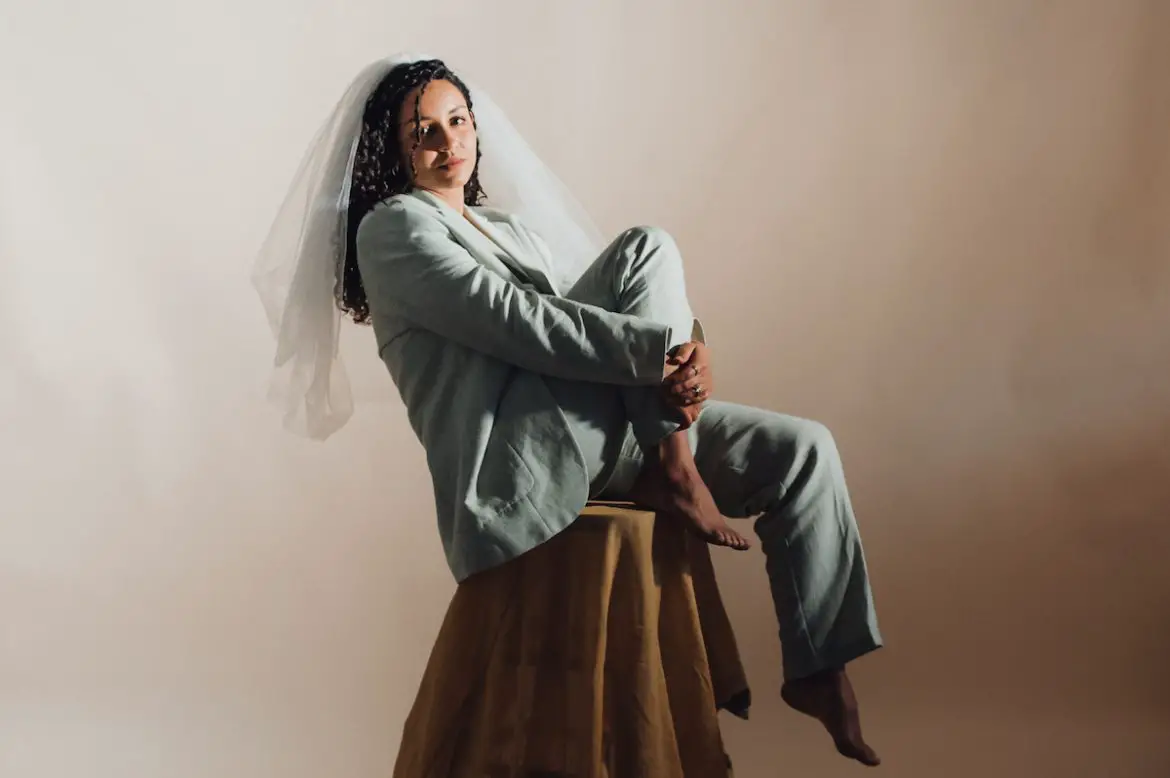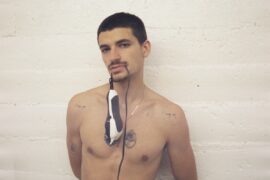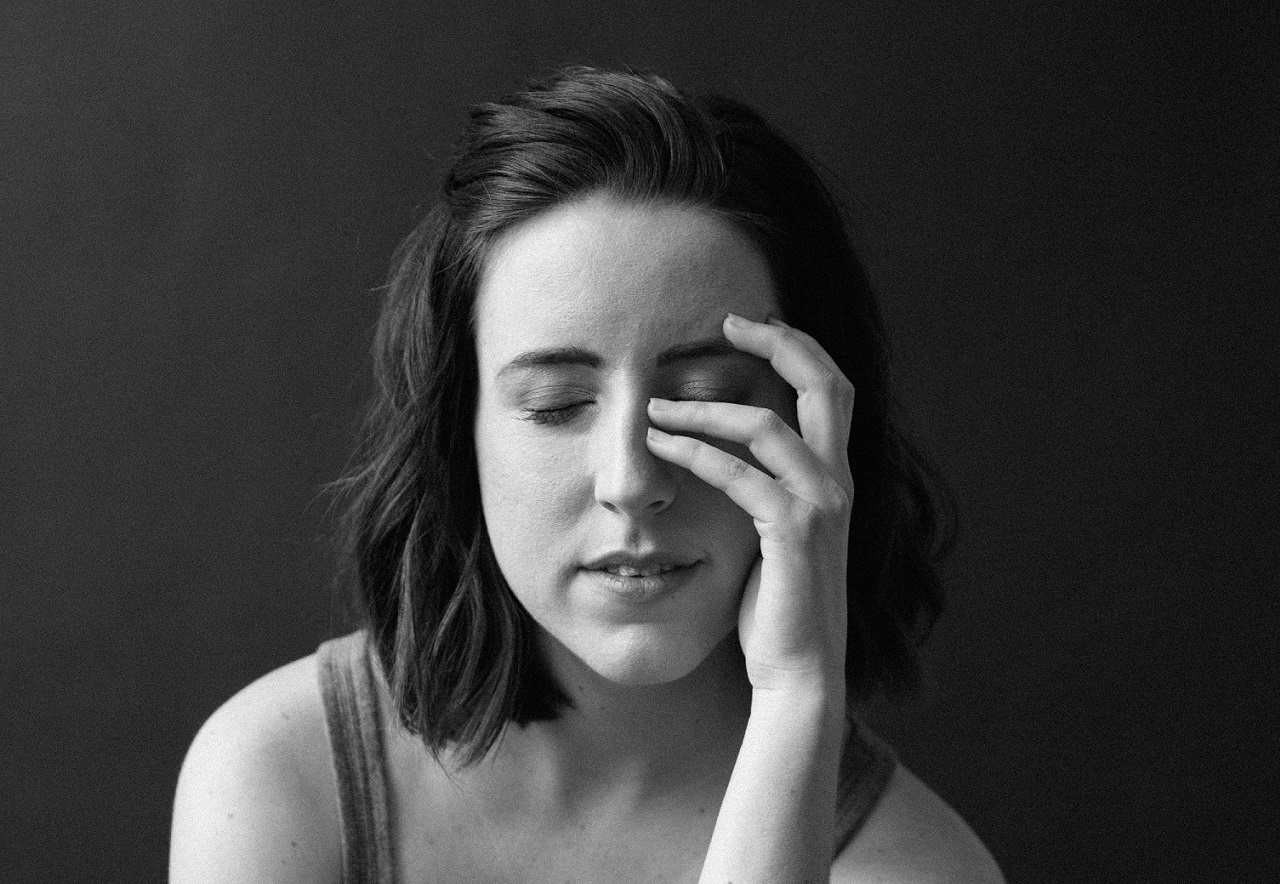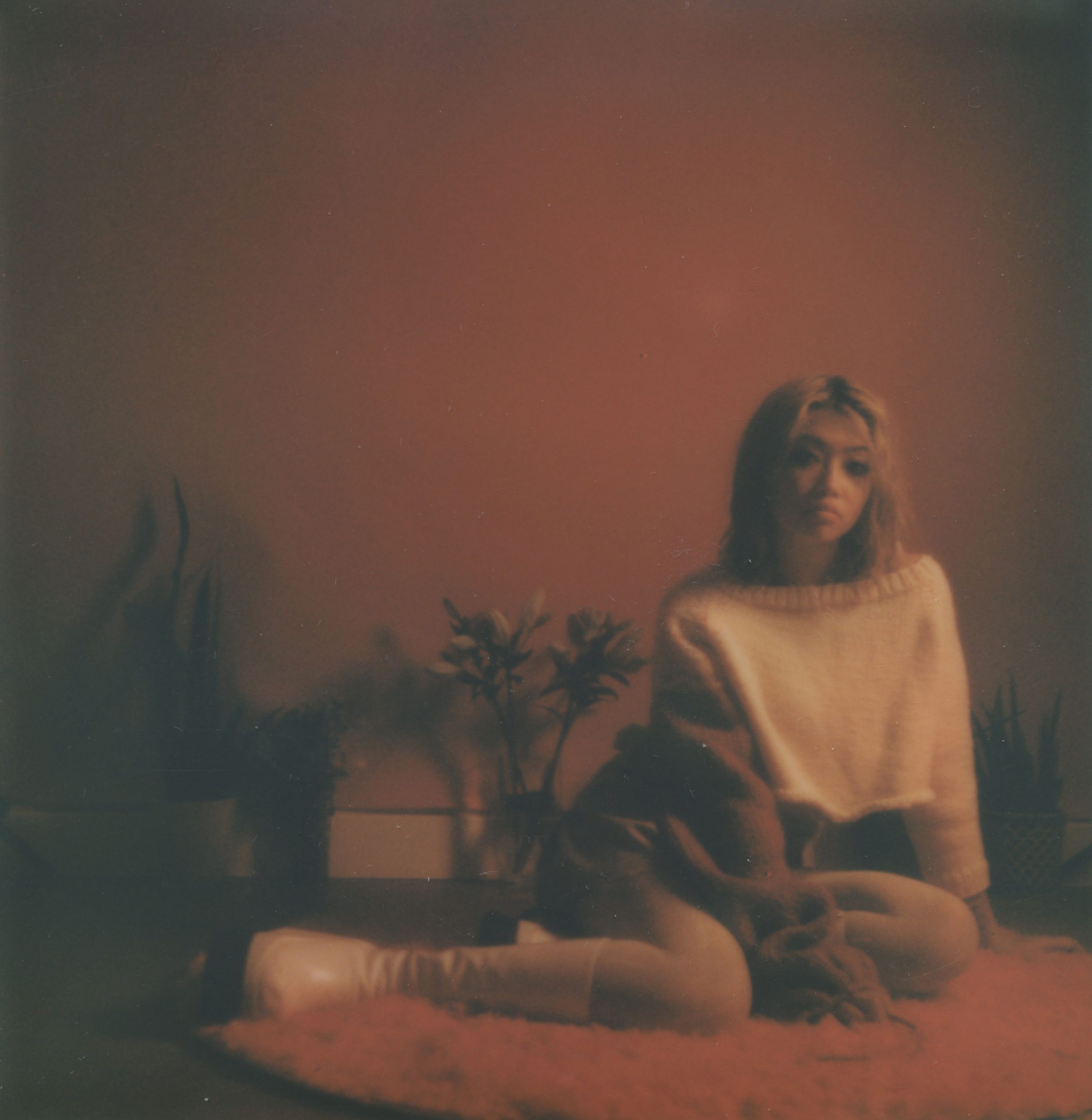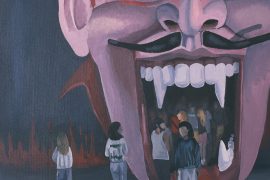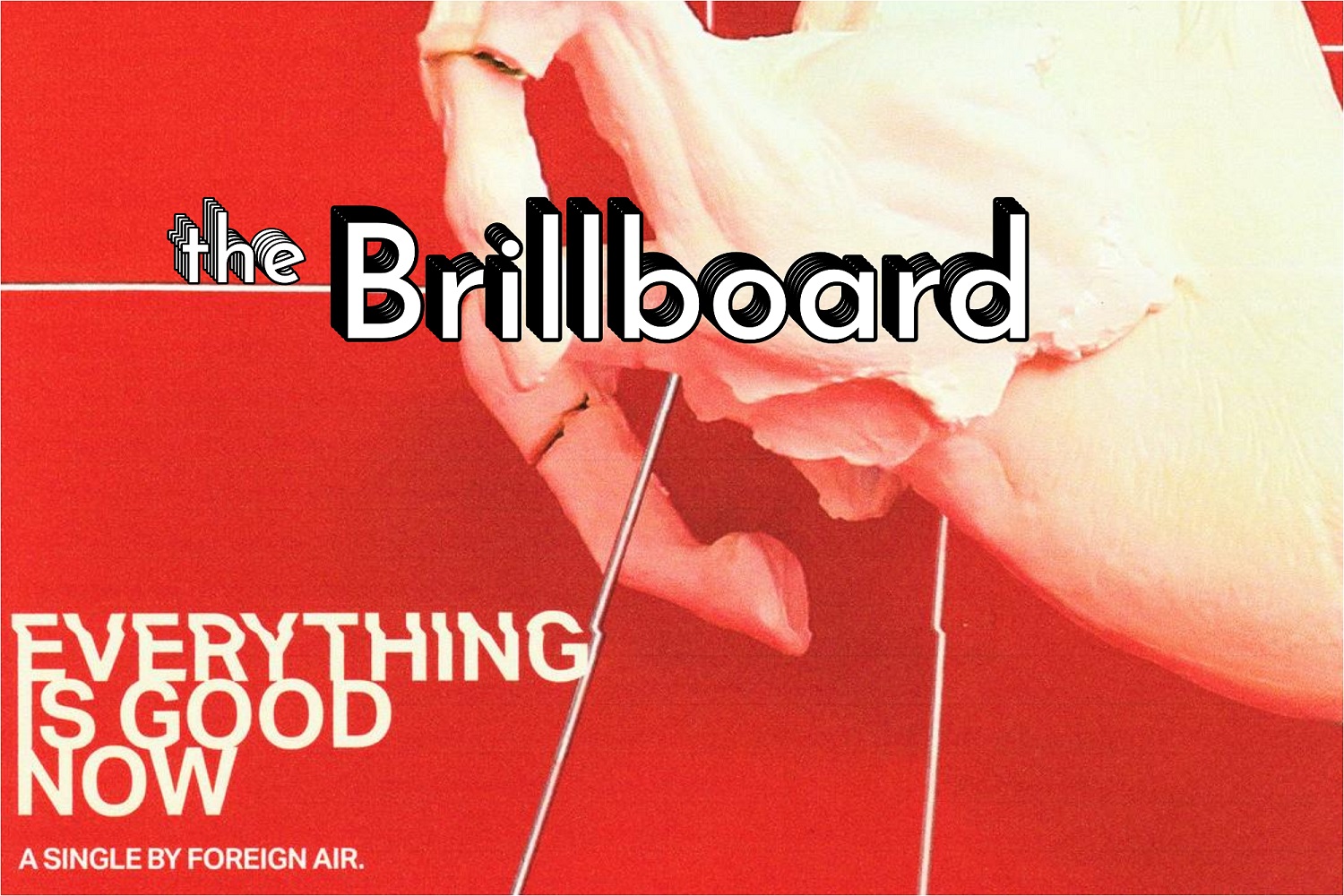An intimate, impassioned album of reflection and rediscovery, ‘The Woman You Want’ brings listeners on a vulnerable journey of the soul as Eliza Shaddad explores deeply personal topics of identity and purpose. Heartfelt and soothing, it’s a record of unbridled honesty and poetic, visceral self-expression.
Stream: “Blossom” – Eliza Shaddad
Eliza Shaddad’s sophomore album is by no means a “pandemic record” as we’ve come to understand the term, but it nevertheless fits the bill with nine songs born from, and perfect for isolated moments of introspection. An intimate, impassioned album of reflection and rediscovery, The Woman You Want brings listeners on a vulnerable journey of the soul as Eliza Shaddad explores deeply personal topics of identity and purpose. Heartfelt and soothing, it’s a record of unbridled honesty and poetic, visceral self-expression: A collection that shines a kind of healing light out from all directions, promising to give you something new with every listen.

Blossom grows on the trees where you last lay here
Constant grey giving way to the blue
And I’m going round, all day digging up the soil
Turning over leaves and searching for renewal
And as the air begins to warm I breathe it in
And as my heart begins to swell I think it must be Spring again
I tell myself I’m dreaming oh in order not to raise the hope
I’ve been in hibernation for so long now I would just like to know
But as the air begins to warm I breathe it in
And as my heart begins to sing I think it must be Spring again
Released July 16, 2021 via Rosemundy Records, The Woman You Want arrives about three years after Eliza Shaddad’s debut album Future helped put the singer/songwriter on the map for good. Hailing from England with Sudanese and Scottish roots, Shaddad has spent the past decade establishing her own lane in the alternative and rock worlds. In reviewing her poignant, heavy three-track EP Sept ~ Dec in early 2020, Atwood Magazine praised the artist for crafting “an alternative lo-fi rush of feeling dealing with difficult, real topics.”
Written in March and April of last year, The Woman You Want came out of a time of re-centering and refocusing for Shaddad, who initially expected to write a quiet album that matched her lyrics’ introspective tone. As England went into lockdown, she and her husband transformed their spare room into a recording studio flush with the gear she needed to make a record. “I thought it would be this kind of lo-fi bedroom record basically, because I thought that’s probably what we’d realistically be able to achieve,” she recalls. Instead, Shaddad wound up making her most colorful, energetic record yet: “It just grew and grew, and it’s got all these intimate moments that are so intimate to me because of how they came about from writing to recording. Somehow, I think we were both just like, ‘Let’s just make it sound like we recorded it in a big studio like we don’t have to be at the mercy of the situation basically.’ And that’s how the record came to be!”
She elaborates, “I thought originally it would be a small lo-fi thing, like a slice of time basically, and as soon as we started recording, I was like, ‘Why don’t we try some harmonicas? What if we add some mandolin?’ So we started calling up neighbors and being like, ‘Does anyone have a mandolin that we can borrow?’ And I think that we had some drums from a previous session that we could use, and then we started making some new ones, and it just got bigger and bigger. I love dynamics in music, and I love the idea of taking someone on a massive journey from the most introspective quiet moment to an all-out anthemic rock moment, and I couldn’t avoid it basically. I thought they’d be small songs, but it was really fun to sing them really, really loudly, and so the songs ended up growing into beasts as usual.”
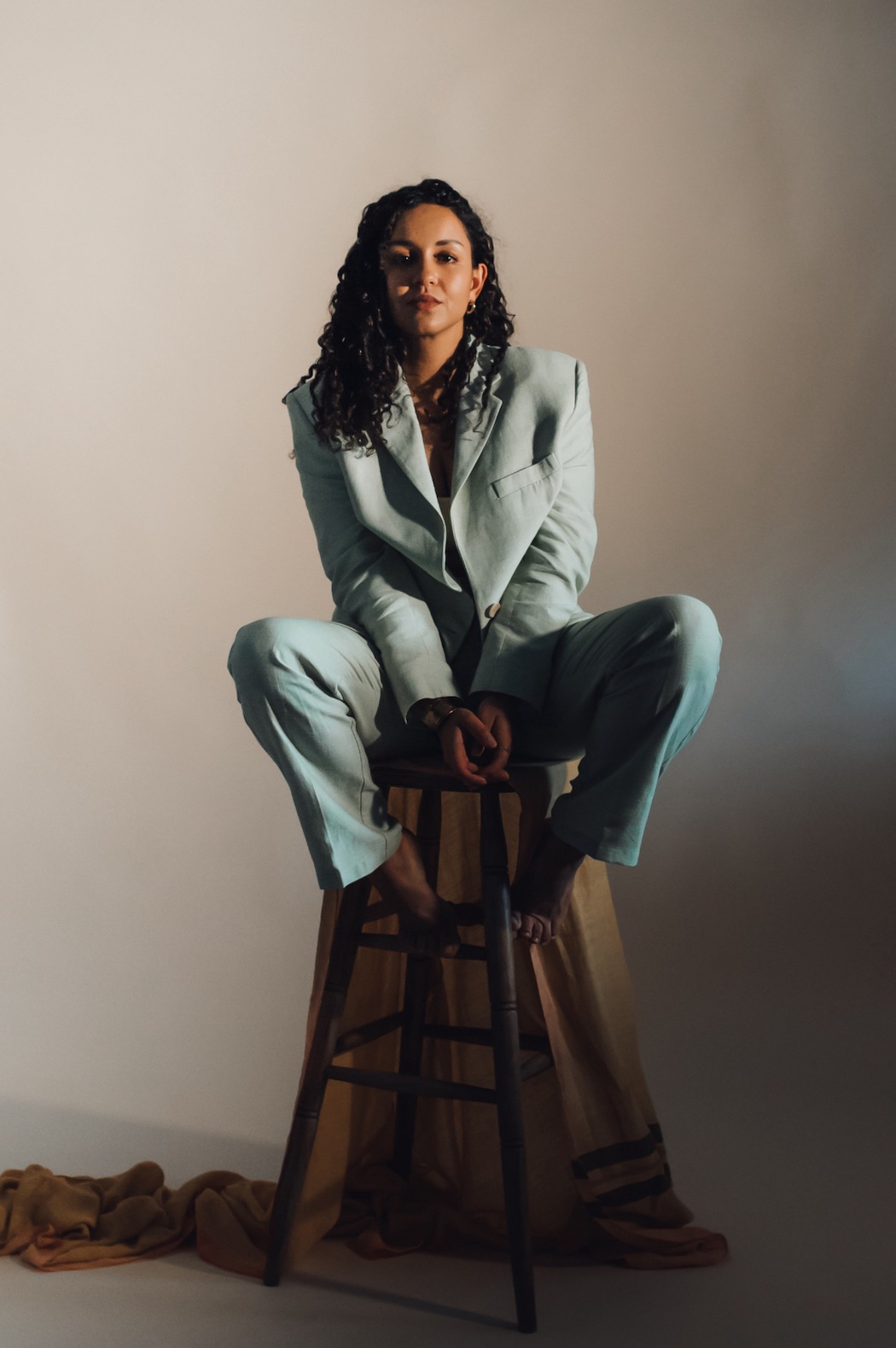
Shaddad’s music is wondrous – even her most tender moments often tend to feel epic.
The Woman You Want is a rock album through and through, with soft and hard moments that run the gamut in “style” while embracing a laudable spectrum of sound. It’s multifaceted and nuanced – an absorptive array of glistening guitars and radiant vocals, tight drums, and a mix of soaring, searing, and rollicking melodies that keep our attention and move us along the way.
“I think that with the first record, I had fought to get out of this folk space into this kind of rockier grungier space, and I didn’t feel like the world had kind of caught up yet,” Shaddad reflects. “And with this record, it’s a very different time in my life, less aggressive, frankly. I think that recording it at home, having a lot less time pressure, and kind of financial pressure on how quickly you have to make things work, and just being in a very different state of mind and writing very different songs, and having the freedom and time to experiment a lot, and I think more importantly, not feeling like I had to make a statement about what I was in a very singular way, [helped me feel] much more at liberty: As I grow up as a person and as an artist, I felt like it’s okay, I’m all of these different things and I can include them all on a record, and that’s fine! I can bring in the Sudanese influences, I can have the really folky moments without people being like, ‘Oh, you’re folk instead of grunge, what’s good?‘ I just felt a lot freer, and I felt like, with the first record, I made the statement that I wanted to make, but I was confined in that inner sense. I was self-managing and self-releasing when I was making this record as well, so I just felt completely free to do exactly what I wanted, and that’s what I did!” she laughs.
“With this record, I was just like, ‘Bring me some classical guitar. Bring me some strings.’ I think it’s as much as anything like what I’ve been enjoying listening to! I fell in love with Kacey Musgravea’ Golden Hour. The number of times I listen to it, I was like, this is a soft, slow record, and I just love it, and I really felt it was quite inspiring in terms of having ten songs all at the same tempo, and they can be beautiful and soft, and it bangs.”
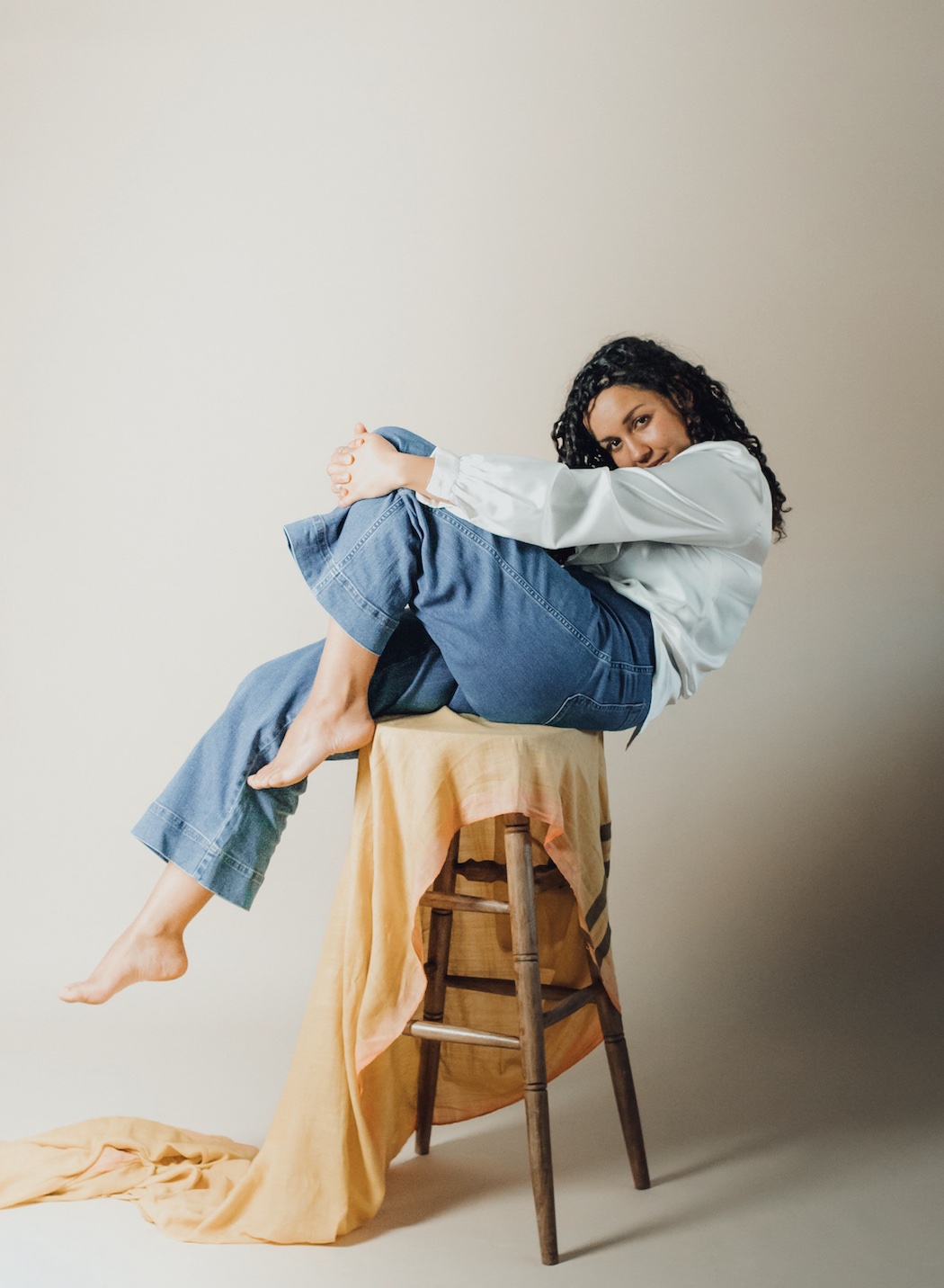
At its core, Shaddad says, The Woman You Want is the product of having extended time to oneself, and the space to step back, soak up, and explore one’s surroundings.
“There was a lot happening at the time that kind of made you wonder about your place in the world on a kind of global scale, as well as on the most macro scale,” she explains. “With the Black Lives Matter movement and the anniversary of the Sudanese Revolution, which has touched my life, I think it just made me really think about the kind of human that I wanted to be, and the kind of woman that I wanted to be, the kind of sister and daughter I wanted to be, the kind of wife I wanted to be… kind of figuring out what was expected of me, what did I like about that, what did I think was unfair?”
“In the moment, it wasn’t as clear, but as time progressed, I saw how clearly I was searching for this ideal of what I wanted to be. When I wrote the song, ‘The Woman You Want,’ and the line, ‘I can’t be the woman you want right now,’ it was clear to me: What I knew I should be and what I felt capable of. I felt like that song really summed up thematically what was going on in the rest of the record. It was nice as a title for the record because it’s a bit hard to pin down… It’s kind of a question, it’s kind of a statement, it’s kind of submissive, it’s kind of authoritative. I like how kind of dense and layered it is. I think that the search for oneself is vast, so it felt like quite a bold title, and it feels suggestive, but it’s meant to be a challenge – basically like, ‘Who is the woman you want? Am I the woman you want? Am I the woman I want?‘ It’s a question in the form of a statement, basically.”
Though she herself was writing and recording from home in the UK, Shaddad felt very connected to (and found inspiration in) some of the movements of recent years. As she mentioned, the Black Lives Matter movement, along with the one-year anniversary of the Sudanese Revolution, played an important role in her process of self-reflection as she sought to understand who she was, who she wanted to be, and where she wanted to fit in the world. Shaddad is half Sudanese and half Scottish, and her father (who does human rights work), along with about fifty other relatives, lives in Sudan.
“Looking back on it from the kind of lens of a year having passed and having so much time, during lockdowns to really delve deeply into different things, and feeling quite emotional because of the situation and then exploring different things with that emotion as part of your way in…” she pauses. “Even when it came to recording. there were words that I wanted to change to make it more relevant and current and to give more of an idea of how it was that I felt about these things. It’s a funny line to walk as an artist: I think if you have a platform, there’s almost an onus on you to use it for good, basically, but that’s quite a scary thing to do, especially if you are someone who likes to have all of the information, because it takes a lot of research to educate yourself about things. I found Black Lives Matter so moving, so interesting, because apart from the main themes that I think had everybody questioning their attitudes towards race and towards the police and all of that, there was this kind of tiny, very tiny, but very present to me aspect of it, which was to do with being mixed race and how I felt about that and how that fit into the debate, which brings in being Sudanese and Scottish and like, ‘How much do I identify as a Sudanese person, how much do I identify as a Scottish person?‘ And there was just so much time for self-exploration, learning about the world, and then trying to kind of figure out how you interpreted that within yourself. I really wanted to bring that into the songs, I think, and it came in quite naturally when I was writing. Then when we were recording at times, I was like, ‘I just wanna change this lyric because I want it to be more emblematic of what everyone is going through, myself included.'”
She cites the song “Fine & Peachy” as an example of these sentiments shining through and expressing her feelings more explicitly. Dynamic and driving, the song smolders alongside vivid, evocative lyrics:
F*** you just tell me what you want to say
Instead of screwing with my head for days
Why so long to spit out what is on your mind?
I’m growing so sick of the ways in which you waste my time
So just send it straight, straight down the middle at me
Coz I can think of a billion other places I would rather be
That stranded in the cold wind that’s been blowing from you lately
Ah pretending everything is just fine and peachy
F*** you I can’t believe it’s come to this
Don’t try and tempt me with your Judas kisses
Don’t try and act as if you’re on my side
Oh what good’s a man who won’t meet my eye?
“That was a song that when I first started writing it, I felt it was very much about being an independent musician and being a boss basically, and being sick of dealing with many things, including the way that the music industry works in many occasions,” Shaddad explains. “As I was writing it, it was based around this sort of thing tied into being given the silent treatment in relation to all these different things tying together. And then when I got into the studio, I just realized that I basically took it really far, I started applying it to fake news, and I started changing the lyrics so it was reflecting Donald Trump and this and that. Then after a while, I was like, ‘Okay, I think I’ve gone a little bit too far. I think I’m going to keep it a little bit more subtle.’ So I mean things like I don’t want the lies, like that’s a direct referral to fake news, but without it being too obvious.”
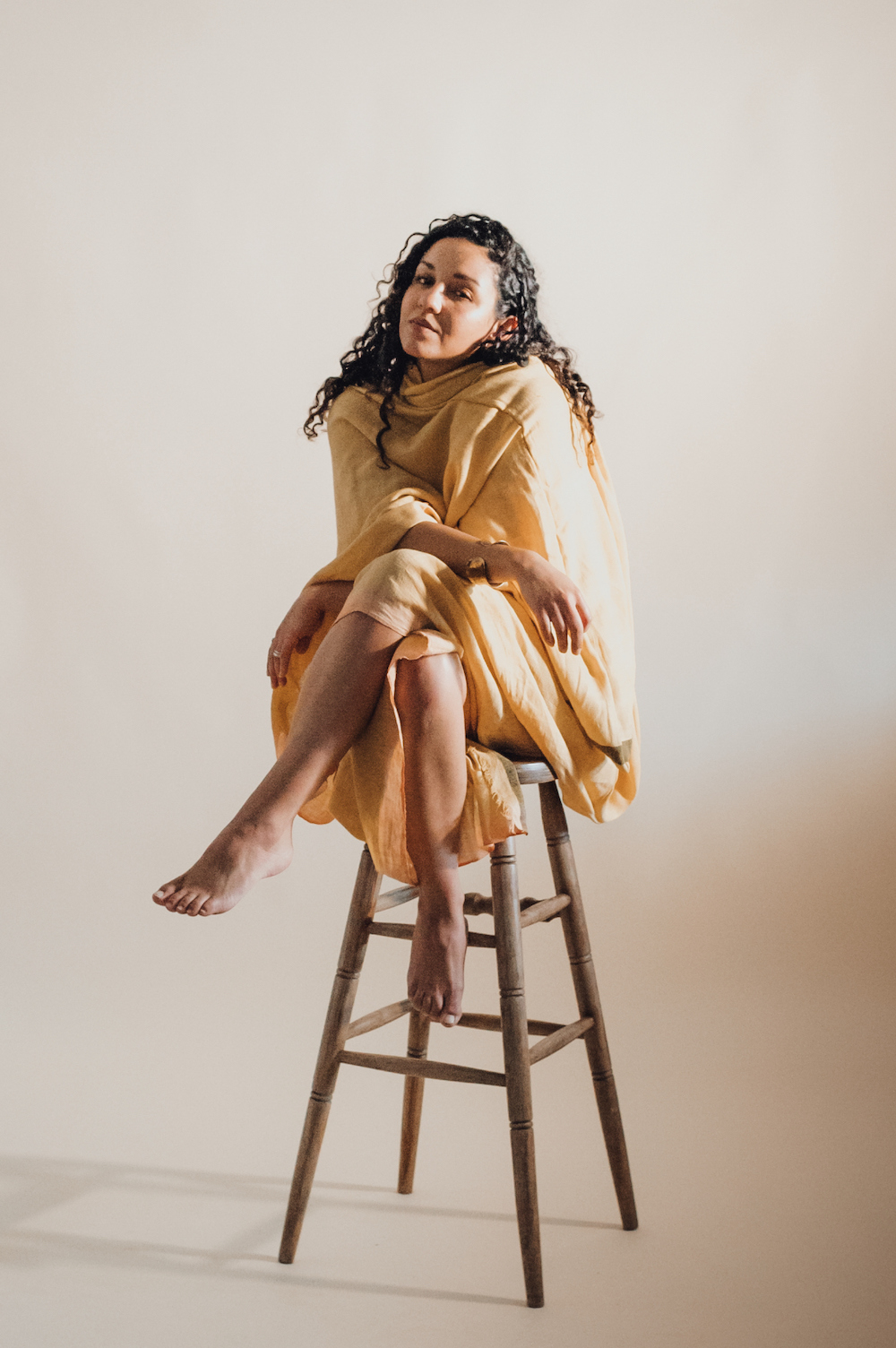
She also notes the album’s lead single and closing track “Blossom,” “which has the most Sudanese influences. As we were making it, I was just thinking about the Arab Springs, and I was thinking about Sudan, I was thinking about the revolution… The idea of hope after all of this trauma, and after this long, cold, dark period. this is the song that I think I can put most of it into, to sort of summarize the hope everyone has for the future – which again, I ended up tying in really well with actual spring and things opening up a bit more.”
You wouldn’t necessarily pick up on all of these themes and personal inspirations by listening to The Woman You Want straight from start to finish, and for Shaddad that’s largely the point – she wants her music to evoke an experience that is unique to the listener, not to herself. Thus, we may not immediately harken to her personal story, but a listener would most certainly feel the emotions that went into each song: That desire for re-growth, the longing for healing, and more shine through Shaddad’s songwriting and expressive performance.
“I think that’s the most important thing,” she says. “I want to be more political in my writing, I really do. Whenever I start a song based on something, maybe something that doesn’t have anything to do with me, even like a kind of separate idea, when it comes back to me, it just always ends up being about the really specific situations that tug on my heart strings or whatever, so it ends up being really personal. It’s like a funny balance, but the emotion coming across is ultimately the main thing for me.”
Highlights abound throughout this very personal nine-track musical volume, for artist and audience alike. Shaddad lists the sweetly cinematic “Tired Of Trying” – a subtle song that hits hard, growing into a moving upheaval over time – as one of her favorites.
“To me, that song is like an underdog basically, and it’s really different to things that I’ve done for the last few years, definitely, and it’s quite electronic. It’s different in so many ways, and I just really like how surprising it is, for the lyrics and for the music as well. I would [also] say that ‘Now You’re Alone’ is probably the most fun to sing out of everything I’ve ever written. It’s so much drama.”
I see it all before me laid out like a road so steep
And I don’t know what I’m doing but I am doing it
Just hoping I’ll find my feet
And I will be honest I’m tired of
Trying so hard
I see the rains of warning
Soon my dreams may be soaking through
But I’m done now with talking
Oh please can I sing to you
‘Cause I will be honest,
I’m tired of trying so hard
As a songwriter, Shaddad also lists some of the lyrics that resonate the most with her. “‘I can’t be the woman you want right now‘ pretty much sums up the whole album for me in some ways. In that song, the name is out in front. Making jokes about Armageddon in the rain… I felt very pleased while we were writing. Normally, when I go in to record, I don’t change a thing. But I really wanted to reflect everything, exactly what was happening in that moment, and that kind of sums up a lot of lockdown to me, I think, just you only get to see your neighbors and everyone’s like, ‘Oh, well, end of the world, eh?’
I like things like… “I’m a woman, golden brown, watch my hair unwind,” I think that song, “Waiting Game” has just some really magical turns of phrase, if I do say so myself. “Tired Of Trying” is probably one of the most honest songs I’ve ever written more than anything – not necessarily the most honest, but the bravest songs, because I am ambitious, and I know what I want from myself as an artist, and I know what I want from the world. When you get to the point, however long it lasts or whether it’s effective or not, when you get to the point where you’re like, ‘I’m just trying so hard… it’s just so hard,‘ even just to say, ‘this is hard‘ was quite a step forward for me, and so I feel like “I’m tired of trying” is a line that means a lot to me, personally.”
I’m a woman golden brown
Watch my hair unwind
Careless colours pooling in your mind
Falling for my fate
I don’t want to hesitate
So I ask around about you, I speak your name
And in my heart I play a waiting game
And at the alter of my love I sit and pray
Until the air is filled with morning light and radio waves
Oh will today be the day?
I’m a woman golden brown
Dressed in lace and white
Pressed up to my window pane tonight
Searching for my fate
I don’t want to hesitate
Shaddad closes the album with “Blossom,” which Atwood Magazine previously praised as “a gilded, warm wash of alt-folk wonder” and “a beautiful, sweet song perfect for ushering in the spring.” A “love letter to growth, renewal, and hope” (per the artist), “Blossom” radiates shining light as the cold winter months thaw and summer’s kiss slowly emerges once more. It’s a song of personal growth; of letting go and allowing oneself to transform:
Blossom grows on the trees where you last lay here
Constant grey giving way to the blue
And I’m going round, all day digging up the soil
Turning over leaves and searching for renewal
And as the air begins to warm I breathe it in
And as my heart begins to swell I think it must be Spring again
“It’s just so hopeful, and it’s kind of lush and interesting and beautiful, and it takes you in a kind of new direction, so it has this kind of double whammy maybe of kind of bringing everything to a lush close, but at the same time really intriguing you as to what comes after that,” Shaddad smiles. “I think it’s an indication of where I would like to go in the future. I’d love to incorporate more Sudanese influences into the music! I love how varied it was sonically and instrumentally. The first song on the album ties in where I’ve been with where I’m going, and I’m sure the last song sort of gives a little hint of where I’m going again.”
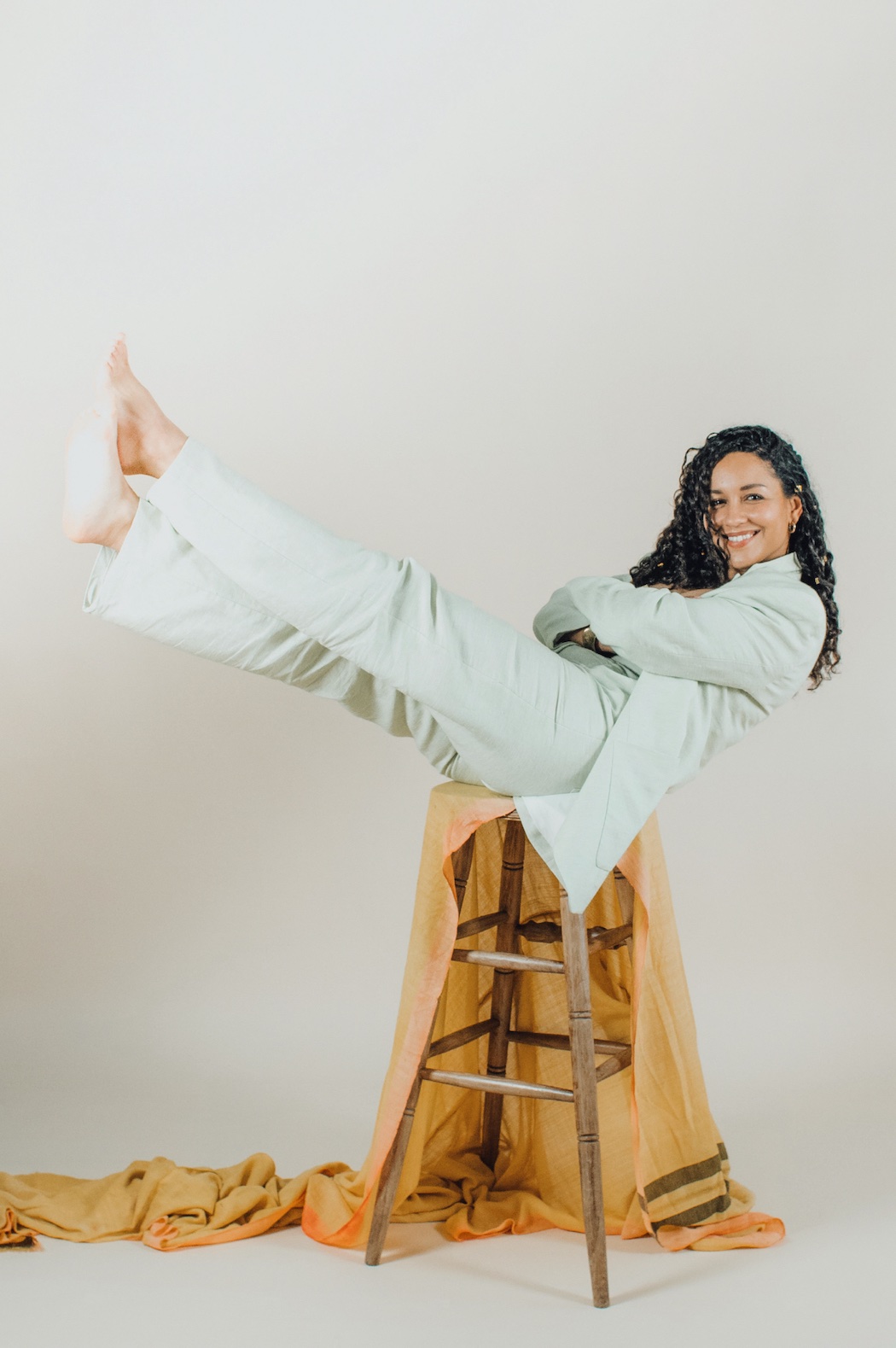
The Woman You Want is at once familiar and fresh; coming out of her own time of isolation and reflection, Eliza Shaddad has given the world an enchanting, exhilarating soundtrack to soul-searching and self-discovery. Her most vulnerable moments are still her own, but we can just as easily take each of her songs and imprint upon them our own stories; our own baggage; our own hopes and dreams.
Ultimately, “I would like people to feel that they are not alone, even though I’m singing ‘Now You’re Alone,'” Shaddad shares, chuckling. “Hopefully, it’s very relatable – I think everyone has searched for who they feel like they are deep down underneath the things that they do and the ways that they act: Who are they? What do they want from life? What is okay for other people to expect of them? I would love young women in particular to identify with it, but I think it’s kind of a universal thing, and I feel like they’re laying out so barely how much of a struggle it is to figure out who you are and what you want, but that it is possible and that it is really empowering.”
“I feel emboldened by the process: I feel lucky that I knew what I wanted to do. I feel really lucky that I was able to do it through all the turmoil over the last few months, and I feel really proud of us for still being married, having done it, and for the kind of team that assembled around it and for the response that it’s been getting from people. I think as much as anything, what I’ll take away from it is that I’m at liberty to explore what I want to explore. I don’t need to feel confined by a genre or anything like that, and I think I have more trust in songwriting as a result of it – I can record the songs in a bedroom or in a massive studio and they will still turn out how I want them to sound. It’s a confidence boost basically; I feel empowered and emboldened, and I’ve found it hard to listen and to write music over the last few weeks as the campaign intensifies, but I just have a burning excitement to sit down and do some proper writing again!”
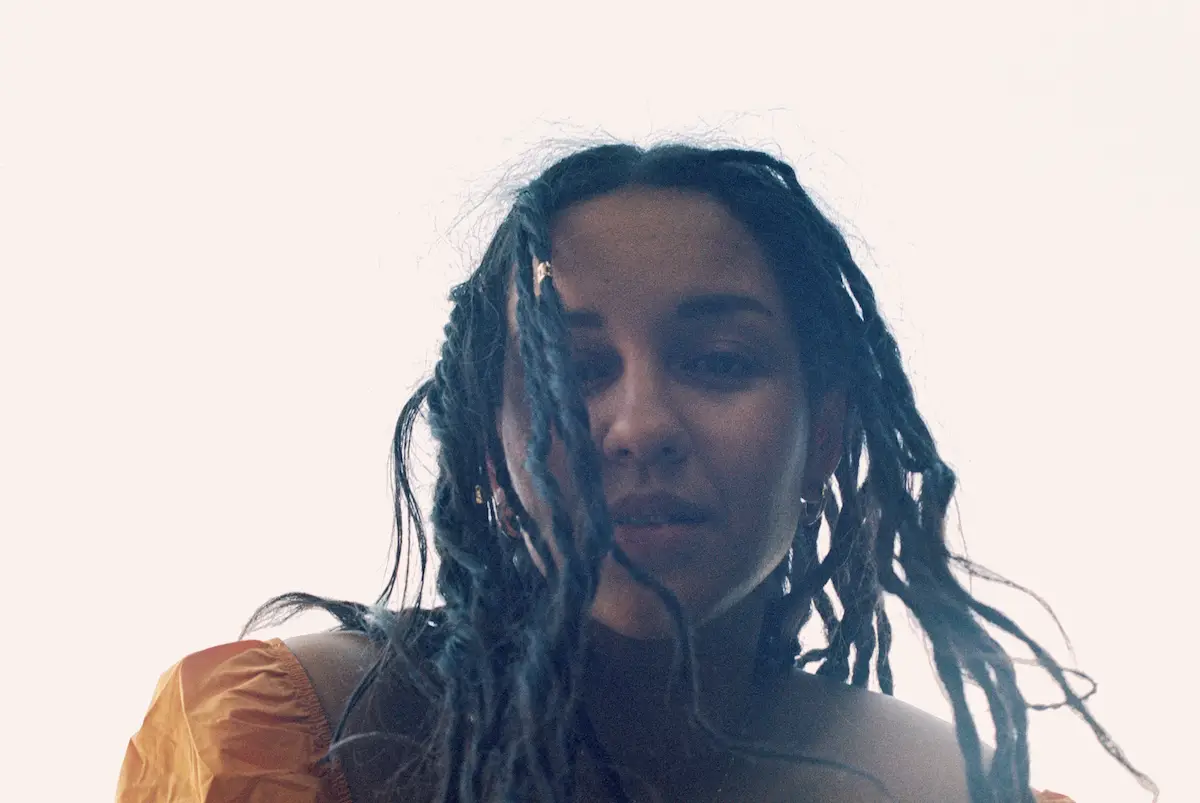
Shaddad came out of this experience refreshed and reinvigorated: More sure of herself and her art than ever before. Listen to the full record via our below stream, and peek inside Eliza Shaddad’s The Woman You Want with Atwood Magazine as the artist goes track-by-track through the music and lyrics of her sophomore LP!
— —
:: stream/purchase Eliza Shaddad here ::
Stream: ‘The Woman You Want’ – Eliza Shaddad
:: Inside The Woman You Want ::

— —
The Man I Admire
A subtly creeping little intro song – Chorusy guitars, harmonies and an unsettling story; setting up the kind of very intimate introspection that the whole album thrives on, examining relationships in clinical detail – and the expectations and disappointments that go hand in hand with putting so much focus on them.
Heaven
Heaven is basically my plea to everyone to keep going. Written whilst I was visiting family in hospital and then later in lockdown, I was feeling super separated from folks and trying to find a way to help myself, and them, wait it out.
This was a turning point in the recording process too – I imagined the record was going to be a small lo-fi bedroom record given we were making it in a bedroom but as soon as we tried harmonica on this song I was like ‘hahaa nope it’s going to be a belter of a song let’s go hifi’:)
Fine & Peachy
A rebellious, sick-of-this-sh*t kind of song which brought out all the country influences I’ve been enjoying over the last few months. Super fun to sing and jump about to. I had so much fun too making the music video for this in my house with the wonderful Jodie Canwell who’s collaborated with me on all the beautiful visuals for this album.
The Woman You Want
The title track for many reasons – and a brutally honest account of what early 2020 was like for me personally. I think it might be my favourite on the record and was definitely producer BJ Jackson’s favourite during the recording process too.
Waiting Game
A real rollercoaster of a song. Lush strings, pulsing electronic drums and a kind of wild explorative energy that helps mark a directional change as the album develops:) This is actually the first song I’ve ever released that I wrote with someone else – (the lovely Ben Christophers) – it was a really magical experience working together and I think the result is something quite unique, and yet really fitting for the themes of the record so I was stoked to try it out in the studio and so glad it’s made its way onto the album:)
Tired of Trying
I mean this song is exactly what it says on the tin – waves of exhaustion and frustration rolling around together in a slow build. I essentially forced husband Ben to sing on it with me and I feel like it’s so fitting we sung it together because at that recording point especially we were both absolutely exhausted and sick of being locked indoors with each other trying to finish the record:)
In the Morning (Grandmother Song)
This is a really special song that I’ve been playing live for a while now but had never before settled on an arrangement for a recorded version. It’s about my grandmothers – one Sudanese one Scottish. It’s about dementia and illness, and what it was like to lose them, and it gets me everytime I sing it.
Now You’re Alone
This is one of the darkest moments on the album – a song that grows from really threadbare to a full string section and about 9 guitars all slamming along at the same time. I was writing it during lockdown and at the time of writing I felt it was about quite a specific situation but listening to it later I can hear that everything that was going on at the time in early 2020 found its way into that song. It’s a brilliant thing to scream-sing to if you need to get some anger/frustration out.
Blossom
A hopeful, positive end to the album’s journey – revelling in the beauty of nature, and looking to a brighter future. It was released at the beginning of Spring this year which was just perfect timing, and It’s peppered with influences from my Sudanese heritage and is probably a clue as to where I’m headed next:)
— —
:: stream/purchase Eliza Shaddad here ::
— — — —

Connect to Eliza Shaddad on
Facebook, Twitter, Instagram
Discover new music on Atwood Magazine
? © Jodie Canwell
:: Stream Eliza Shaddad ::

